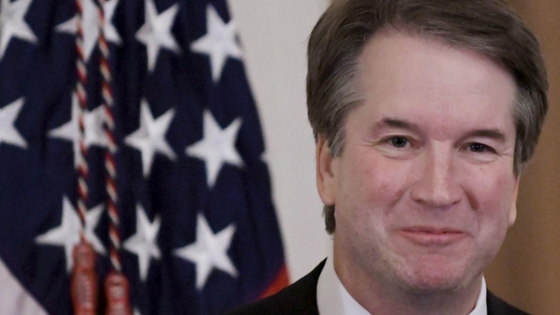In a move that did not come as a huge surprise to anyone, President Donald Trump last night nominated Brett Kavanaugh to be a Supreme Court Justice. Kavanaugh, who has been a judge on the Court of Appeals for the District of Columbia for the past 12 years, would replace Justice Anthony Kennedy, who has announced his retirement from the bench.
Kavanaugh’s name had been floated on the shortlist to replace Justice Kennedy for the past two weeks. If confirmed, he is expected to tilt the balance of the court to the right and is expected to take a more conservative stance on issues than his predecessor, who was a swing vote on many issues.
The ARM industry became aware of Kavanaugh back in 2016, when he wrote an opinion ruling that the leadership structure of the Consumer Financial Protection Bureau to be unconstitutional. That ruling, in the case of PHH Mortgage v. CFPB, set off a two-year debate as to whether the president should have the power to fire the director of the CFPB for any reason, not just for cause. The CFPB appealed that ruling to the full panel of judges on the D.C. Court of Appeals, which overturned the three-judge panel and said that the CFPB’s leadership structure was constitutional. Kavanaugh wrote the dissenting opinion in the court’s en banc ruling.
“Because the CFPB is an independent agency headed by a single Director and not by a multi-member commission, the Director of the CFPB possesses more unilateral authority – that is, authority to take action on one’s own, subject to no check – than any single commissioner or board member in any other independent agency in the U.S. Government,” Judge Kavanaugh wrote in his dissenting opinion. “Indeed, other than the President, the Director enjoys more unilateral authority than any other official in any of the three branches of the U.S. Government.”
Kavanaugh’s opinions in the PHH case are likely be a focus of his confirmation hearings as it speaks to his beliefs on executive powers.

Kavanaugh’s confirmation process is expected to be tumultuous. Republicans hold a 51-49 majority in the Senate, which means they can not afford a single defection if Kavanaugh is to be confirmed as Kennedy’s replacement. There are a small number of vulnerable Republican senators who are up for re-election this November that could be pressured into voting against Kavanaugh’s confirmation as a means of appearing to be more moderate to voters while there are also a number of Senate Democrats up for re-election that could be pushed to confirm Kavanaugh for the same reasons.
The public appears to be gearing up for a fight, with protestors gathering on the steps of the Supreme Court last night to rally against Kavanaugh’s nomination.
Kavanaugh, who clerked for Justice Kennedy, was born in Washington, D.C., and has been an active Republican. He worked for Kenneth Starr, an independent counsel who investigated former President Bill Clinton, Kavanaugh laid out grounds for impeaching President Clinton following an affair with an intern. Kavanaugh also worked in the White House for former President George W. Bush. He was nominated to the D.C. Court of Appeals in 2003, but Democrats held up his conformation until 2006. Democrats have vowed to do whatever they can to block Kavanaugh’s nomination.









